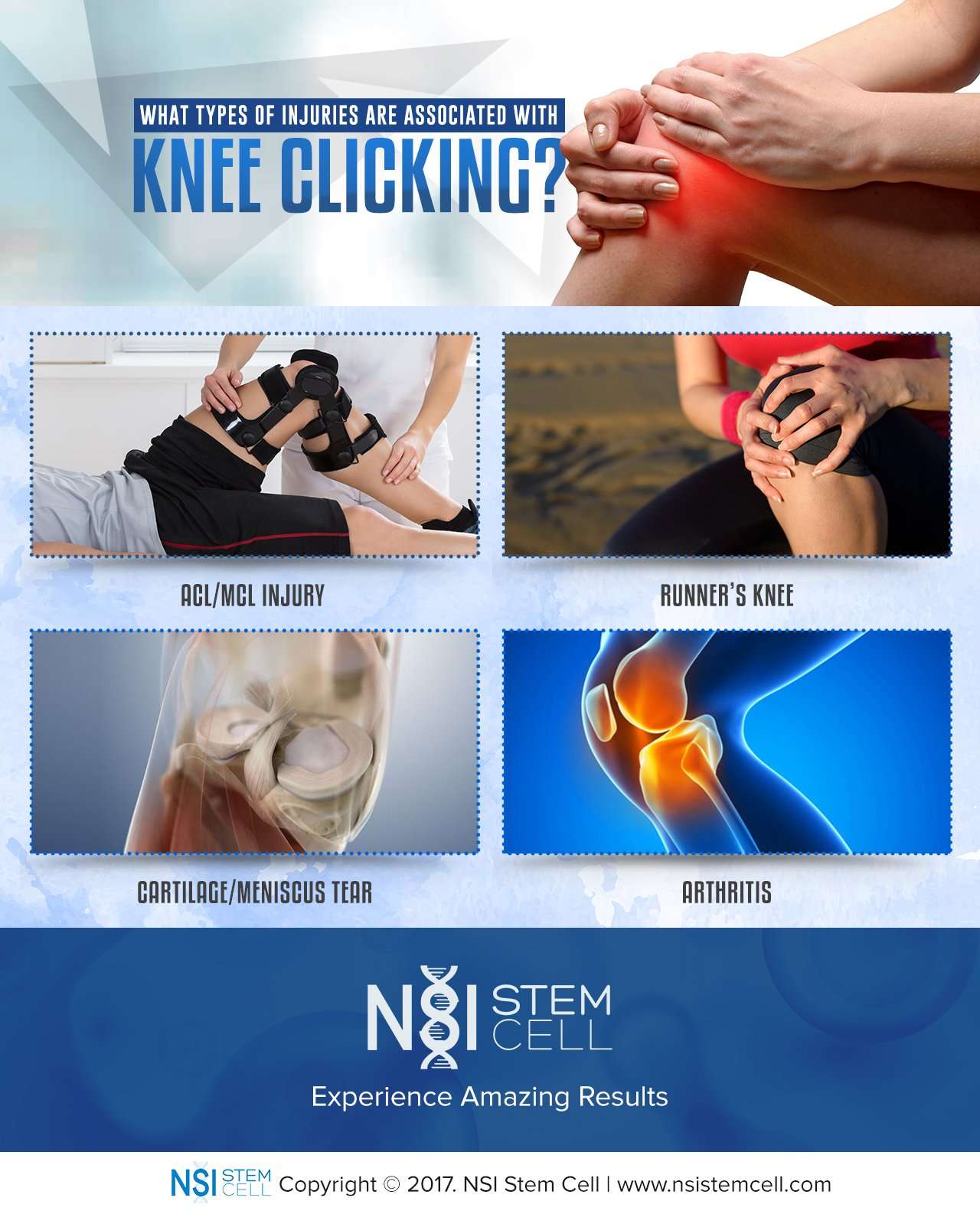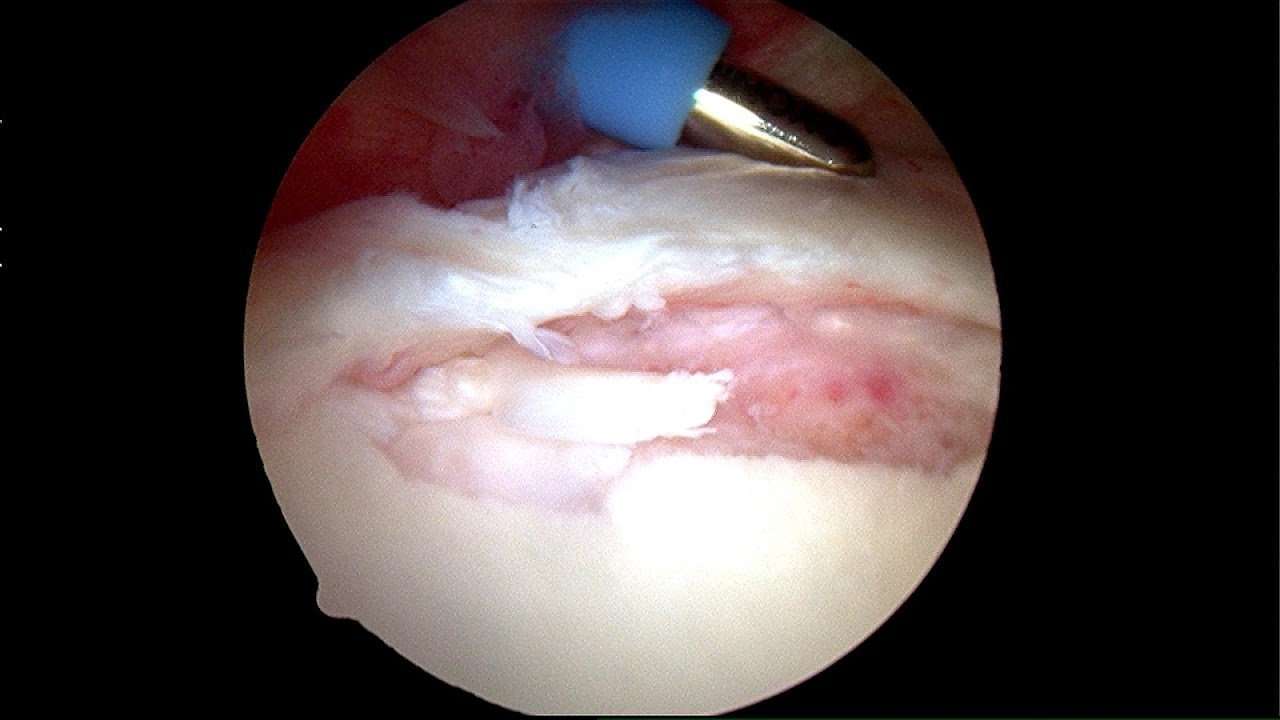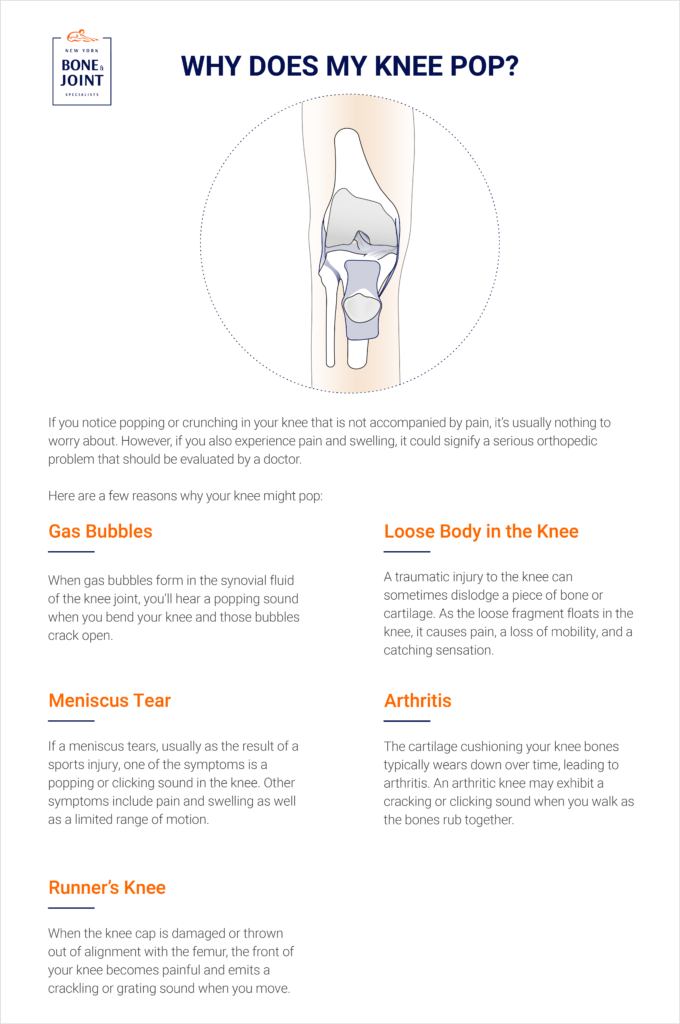What’s The Outlook For Teenagers With Pain In Their Knees
Most knee pain in teenagers can be managed with simple treatments. However, many soft-tissue tears and bone breaks require surgery. Most teenagers recover without long-term problems if they follow the recover plan provided by their healthcare providers. Because there are many causes of knee pain, be sure to ask your healthcare provider for specific information on long-term prognosis for your teen’s knee condition.
Why Does My Knee Pop When I Walk
Why does my knee pop when I walk? That is the most common question asked by young athletes. Although its natural to here cracking and popping sounds in the knee from time to time, you shouldnt take those sounds for granted once they occur frequently. The knee popping sounds that are accompanied by pain could be an indication that you have an underlying health condition that is yet to manifest.
For people who are asking Why does my knee pop when I walk?, there could be several answers to your question. An injury may have caused some parts of the knee to become loose, thus creating the unnecessary sounds. Another reason could be torn ligaments and tendons due to a recent extreme physical activity. Whatever the reason may be, its important that you apply basic remedies even during the first signs of pain. This will prevent your knees from getting worse, before you can even ask for a doctors advice.
Why does my knee pop when I walk, when in fact I am a sedentary person? That is another question commonly asked by young people. Although an active lifestyle exposes you to risks of knee pain and injuries, it doesnt mean people who lead sedentary lives cant get the same condition. There are knee pains that are not associated with physical injuries, but rather and underlying health condition. To get an accurate diagnosis, its always best to consult a doctor.
What Causes Kneecap Clicking
There are 2 main reasons for getting kneecap noises – its either from bubbles of gas popping or the kneecap not tracking in the knee joint groove properly.
Gas Bubbles: Sometimes tiny air bubbles build up within the fluid inside your joints. These bubbles make a noise when they burst during joint movement. The gas gets pushed through a very narrow joint space making a noise By the way its a Myth youll get arthritis from clicking your knuckles!!!
Kneecap tracking: anatomy wise – Your kneecap is held in place on top of the knee joint by muscles, tendons and ligaments. If these soft tissues get tighter on 1 side of the knee more than the other, the kneecap can get pulled out of alignment slightly as you move, creating a noise.
Both of these 2 causes are fairly normal and occur in everybody every single day.
Kneecap clicking is not often painful and people are used to living with it for years. Hearing unusual noises from the knee can worry people, as you fear the worst when you cant see whats going on inside. Dont panic! Noise doesnt always mean damage.
We do know that Kneecap clicking/crepitus is more common in women than men. This is possibly due to the biomechanics of women having a wider pelvis , and theres also hormonal differences in women that can increase soft tissue laxity Some people are also born with shallow grooves under their kneecaps too which mean the kneecap hasn’t got a deep groove to sit in either?
You May Like: Whiten Knees Fast
Common Causes Of Pain Behind The Knee
Sometimes pain behind the knee is simply due to muscle strains. These injuries usually heal in a matter of days. However, this is only one possibility. There can also be pain behind the knee as a result of systemic diseases or some life-threatening conditions. Below we take a look at just what the different potential causes are.
Are There Any Shoes That Work For Knee Pain

They have many stories about shoes that work wonders in people’s lives: glass shoes that brought Cinderella love and bright red heels that gave Dorothy strength in MGM’s version of The Wizard of Oz. In real life, the magic of shoes comes down to “flexing” the shoes, which can help relieve knee pain caused by osteoarthritis.
Recommended Reading: Can Knee Replacement Cause Neuropathy
Patellar Dislocation Or Subluxation
The kneecap, or patella, normally glides through a groove. A direct blow to the kneecap, usually from an accident or sports injury, can dislocate it from this groove. This is called patellar instability.
Two types of patellar instability include:
- Patellar dislocation: The kneecap is totally moved outside of its groove.
- Subluxation: The kneecap is only partially out of its groove.
What Are The Symptoms Of Knee Pain In Teens
Symptoms depend on whats causing your teens knee pain.
Anterior knee pain:
- Pain begins gradually worsens with activity.
- Dull, aching pain behind the kneecap, below the knee or on sides of the kneecap.
- Pain flares and grinding sensation with repeat knee bending .
- Thigh muscle weakness .
- Knee buckles .
Trauma to knee:
- Popping, clicking, crackling in the knee when bending .
- Knee that locks or buckles.
Osgood-Schlatter disease:
- Pain on the bony prominence.
- Pain that varies and gets worse during or just after the activity.
- Reduced range of movement.
- Pain, tenderness and swelling at the bottom of the kneecap.
- Balance problems.
- Trouble putting weight on the affected leg limps first thing in the morning.
- Redness, swelling, warmth, stiffness and soreness in joints, including the knee.
- Symptoms come and go.
- Dull ache, stiffness and swelling at the knee.
- Joint clicking.
You May Like: What Is Nano Knee Replacement
How To Avoid A Knee Injury
Your cartilage loves motion. It receives its nutrition from the fluid inside the knee, and motion encourages joint health. When you’re sitting all day, it’s not getting enough nutrition to stay healthy. Just like you, it needs a healthy lifestyle.
A well-balanced diet with protein, vitamin D, and calcium helps keep your bones and knees healthy. But smoking puts you at a higher risk for osteoarthritis. It restricts your blood flow, which can cause damage to your cartilage.
Keep your muscles strong, especially your quads. The muscles around your knee can balance impact and lower your risk of a major injury. If you do get injured, your physical therapist will concentrate on your hamstrings and quads while your knee recovers.
There are a lot of moving parts involved with your knee. If you hear a pop but theres no swelling or pain, don’t worry about it. Do see a doctor if theres:
- Pain
- A sense of instability
What Causes Cracking In The Knee
The most common cause of cracking or grinding is gas bubbles in the main knee joint. They have a lubricating fluid in their joints called synovial fluid, which can contain gas bubbles. The change in joint pressure as you move your knee causes these gas bubbles to move and burst, causing the sound to burst or pop.
Read Also: What Rebuilds Cartilage
Heard A Pop 6 Different Knee Injuries That Make A Noise
As we get older, we feel new aches and pains, along with hearing new pops in our joints. Some of us crack our knuckles and don’t think about it. When your knee pops, you hope it’s just the joint releasing air and not something more. So, when do you need to worry about a knee pop?
My Knee Popped Should I Be Worried
The vast majority of people with grinding or popping in their knees do not have pain and most do not need to worry. But some have had new or older injuries and now your knee pops. There are three basic groups we see who complain of their knee making a popping sound.
Now, there are those of you who might have painful snapping or popping in your knee. Lets explore some of the more common reasons for painful knee clicking, popping, and snapping.
Also Check: What Is Nano Knee Surgery
How Do You Strengthen Your Knees
8 Exercises to Help Your Knees
Here are 10 tips to stop your knees from popping and cracking.
Knee Braces And Other Supports

If your noisy knee is the result of osteoarthritis, your doctor might suggest using a knee brace or knee sleeve to support your knee joint, as research from 2014 suggests that it might help.
Orthotic inserts in your shoes might help too. It might not eliminate the noise, but a cane might help you get around a little easier, too.
Read Also: How To Use Ginger For Knee Pain
Who Is At Risk For Injuries Related To Knee Instability
Risk factors for injuries related to knee weakness include:
- Engaging in sports, especially football, lacrosse, basketball, or skiing
- Ignoring knee pain: Pain is your body’s sign something is wrong. If you let it persist unchecked, you could be allowing its cause to worsen.
- History of torn ligament surgery
- Arthritis
- A prior knee replacement
Complications Of Knee Buckling
Complications of weak knees may include:
- Recurrent falls
- Lack of confidence with balance
- Feeling scared or nervous about future falls
- Injuries because of falls
You should see your healthcare provider if you are experiencing the sensation of your knee giving out.
Seek immediate medical care if your knee gives out and you experience severe pain, significant swelling, or a fever.
Also Check: Getting Rid Of Fat Around Knees
Knee Pain And Popping Causes
Knee popping and clicking can be caused by a number of things. It may be something simple like the ligaments catching on a bony lump and “snapping” back in to place or gas bubbles popping. But in some cases, knee popping is linked to a more serious injury such as ligament or cartilage tear.
Knee clicking and popping noises in the knee usually fall into one of three categories:
Knee Crackles When Bending
Have you ever been surprised when your knee crackles? Maybe you were stretching at the time or just standing up after a long time sitting. Perhaps you were climbing stairs or walking down the street. No matter the case, you may be wondering why it happens and if there is anything you can do to prevent it. You might also be asking yourself if it is something you need to worry about or it is just a part of life.
Read Also: Dcf Compression Knee Sleeve
Some Concern: Persistent Popping With Swelling Pain Catching Or Grinding
When the knee popping sounds are accompanied by swelling and pain, or produce a catching sensation, or the knee gives way, I worry about a possible injury within the knee. A physician should examine the knee to help make a clear diagnosis.
In this case, there are several possible explanations for the popping. The noise and pain may be a mechanical symptom, which feels like something is caught in the knee as it moves back and forth. This kind of popping is often a sign that you have a meniscus tear, or that a small piece of loose cartilage is caught in the knee. You would most likely feel this kind of popping pain come and go. An exam, X-ray, and MRI will tell the definitive story.
Painful knee popping can also be caused by osteoarthritis, where the smooth cartilage has worn down and the bones cause friction when they rub against one another. This painful popping would be more persistent.
Another common problem that results in a popping or grinding sensation is roughness on the undersurface of the patella. This used to be called chondromalacia, and is often labeled as patellofemoral pain syndrome, or runners knee. Often you may feel the popping, grinding, or crunching more than you can hear it. To feel this, try squatting with your hand flat over the front of your knee.
For each of these types of knee sounds, if there is no tissue torn, anabolic injections of growth factors plus lubricants has been surprisingly and often dramatically effective.
How Is Knee Pain In Teens Treated
Treatments depend on the cause of your teens pain.
Pain from overuse and general knee pain management tips include:
- Apply ice to the knee. Ice, wrapped in a towel, relieves inflammation and swelling. Apply up to 20 minutes at a time.
- Take anti-inflammatories, such as ibuprofen , naproxen or aspirin, to reduce pain and swelling.
- Rest. Rest allows tissue to heal. Your teen should take some time off from the activity that caused the pain.
- Use compression around your knee if prescribed by your healthcare provider or physical therapist.
- Elevate the knee to reduce swelling. Keep the injured knee elevated above the level of the heart anytime your teen is sitting or icing their knee.
- Follow through with the physical therapy plan. Physical therapy can help relieve pain, reduce swelling, increase strength and flexibility, improve range of motion, increase speed and endurance and improve coordination and balance. Physical therapists teach strengthening and stretching exercises and can suggest braces, insoles or other orthotics as appropriate.
- Lose weight if overweight. Extra weight puts strain on the knee joint.
Osgood-Schlatter disease:
- Take anti-inflammatories to reduce pain.
- Apply ice to reduce pain and swelling.
- Commit to an exercise program.
- Relieve pain and discomfort through electrotherapy and/or hydrotherapy .
Sindling-Larsen Johansson syndrome:
- Soft tissue treatments, including myofascial release, trigger points, massage.
Ligament treatment:
You May Like: Does Copper Infused Fabric Really Work
What The Clicking Is Not
Many of our patients worry that the clicking represents the bones rubbing together and causing damage to the joints. This is simply not the case. It is normal for knees to click, they are moving parts with many structures that move and glide next to each other when you bend and straighten the knee, for example when going up or down the stairs.
Joint Inflammation Or Injury

Crepitus can also occur in special forms of arthritis or when structures around the joint are inflamed or injured. These types of disorders are usually accompanied by pain and the marked restriction of movement.
- Bursitis: This is inflammation of the fluid-filled sacs near the joint called bursa. It may be caused by an infection, autoimmune disorder, trauma, or a repetitive use injury. Crepitus can occur when the inner surfaces of an inflamed bursa rub against each other.
- Tenosynovitis: With this, inflammation builds up in the lining of the tendon sheath called the tenoysnovium, which surrounds a joint tendon. Crepitus can occur when a tendon slides through an inflamed sheath.
- Patellofemoral pain syndrome : Also known as runner’s knee, this is caused when the cartilage under the kneecap is damaged. This roughened cartilage can cause crepitus during knee movement.
- Temporomandibular joint disorders , which are characterized by pain and other symptoms related to problems in the TMJ, the articulations between the jaw and the base of the skull. People with TMJ arthritis can sometimes hear crepitus with jaw movement. TMJ disorders can also result in both a clicking sound and popping sensation as you open your mouth.
Recommended Reading: Nano Knee Procedure
What Is The Main Cause Of Knee Problem
The most common causes of knee pain are aging, injury, or repetitive strain on the knee. Common knee problems include strained or strained ligaments, torn cartilage, tendonitis, and arthritis. Diagnosing a knee injury or problem involves a physical exam and usually the use of one or more diagnostic tests, such as X-rays, MRIs, CT scans, or arthroscopy.
Rare And Unusual Knee Instability Causes
Causes of knee instability that occur even less frequently include the following.
- Partial dislocation: If you do something strenuous enough to damage the ligaments, it is likely that you will have damage to the cartilage around the knee bone as well. The patella, or kneecap, can become partially or completely dislocated. A partial dislocation is called a subluxation. Dislocation can occur if the ligaments are damaged and are not holding the kneecap firmly in place as usual.
- Cartilage tears: The cartilage at the ends of the upper and lower leg bones, which meet under the kneecap, can become torn. This often happens along with a ligament sprain.
- Cartilage wear: Cartilage can gradually wear away over time, causing pain and difficulty moving since there is no longer enough cushioning material between the bones.
- Birth deformity: You may have been born with knee structure that makes the joint vulnerable to slipping out of place.
This list does not constitute medical advice and may not accurately represent what you have.
Recommended Reading: Inversion Table Benefits For Knees